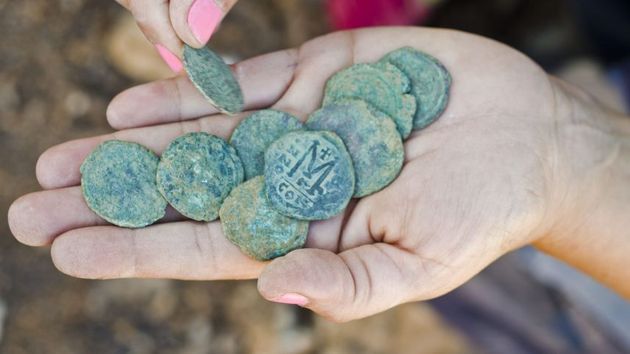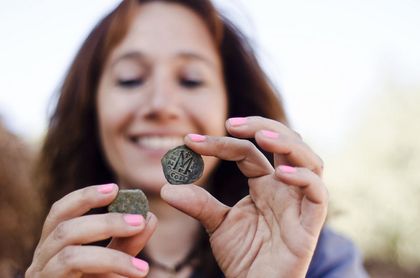Old Byzantine coins hidden by Christian pilgrims found in Jerusalem
The cache of nine bronze coins may have been stashed fleeing Christians en route to Jerusalem as Persians invaded the land in 614 CE.
Israel Antiquities Authority, Christian Today · JERUSALEM · 21 MARCH 2017 · 10:54 CET

A stashed collection of nine ancient bronze coins from the late Byzantine era of 7th century CE, has been found by the Israel Antiquities Authority (IAA) in an excavation that began in June 2016.
The excavation came ahead of the planed widening of Highway 1 between Tel Aviv and Jerusalem. The Netivei Israel Company, who are financing the highway, and the IAA are working together to conserve the historic site as a 'landmark in the scenery' alongside Highway 1.
TWO-STOREY BUILDING AND A WINE PRESS
The coins were discovered alongside a collapsed two-storey building, which once served Christian pilgrims on their way to Jerusalem. They also discovered an ancient wine press.
According to Annette Landes-Nagar, director of the excavation on behalf of the IAA, “the hoard was found amongst large stones that had collapsed alongside the building. It seems that during a time of danger the owner of the hoard placed the coins in a cloth purse that he concealed inside a hidden niche in the wall.”
“He probably hoped to go back and collect it, but today we know that he was unable to do so", she added.

BYZANTINE EMPERORS
The uncovered coins could be easily dated because they bear the images of three important Byzantine emperors, under which they were made: Justinian (483-565 AD), Maurice (539-602 CE) and Phocas (547-610 CE).
They were struck at three different mints, Constantinople, Antioch, and Nicomedia, all of which are located in in present day Turkey.
An image of the emperor wearing military garb and carrying crosses is depicted on the obverse of the coins, while the reverse indicates the coin’s denomination and is usually inscribed with the letter M.
CHRISTIANS FLEEING PERSIAN INVASION
Archaeologists believe the stash was made by Christians fleeing the Sassanid Persian invasion in 614 CE. “This invasion, was one of the factors that culminated in the end of Byzantine rule in the Land of Israel”, Landes-Nagar explained.
Fearing an invasion and imminent danger, the residents of the site buried their money against the wall hoping to return home at the end of the disturbances, which did not happen.
The site was abandoned and destroyed, and ultimately covered over and incorporated in the agricultural terraces that characterize the region. A Byzantine church was revealed in that part of the excavation.
Published in: Evangelical Focus - culture - Old Byzantine coins hidden by Christian pilgrims found in Jerusalem
